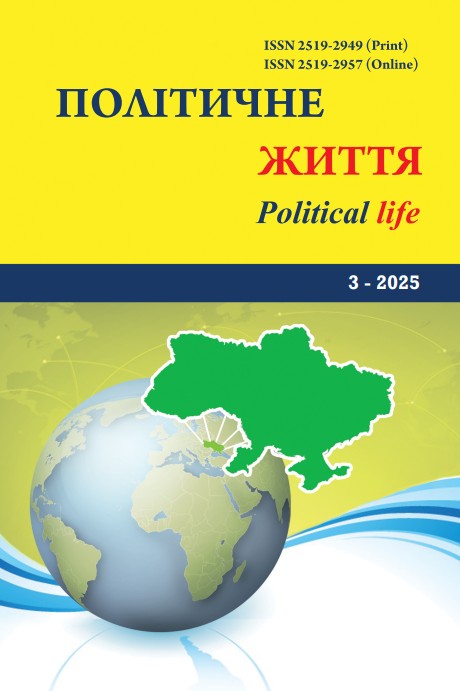Prison subculture or national prison culture: importation of russian neocolonial narratives in the 21 century
DOI:
https://doi.org/10.31558/2519-2949.2025.3.9Keywords:
prison subculture, criminal subculture, the Grand Principality of Moscow, Russian Empire, Soviet Union, Gulag, Russia, colonial policy, UkraineAbstract
The article is focused on the origins of Russian criminal and prison subculture and the current state of this phenomenon, which is imported by the Russian Federation within its imperialistic neocolonial policy aimed at restoring the ‘Soviet space’. In order to analyse the preconditions for the emergence of the Russian criminal and prison subculture, it is necessary to consider a large complex of historical, cultural, political, geographical, and economic factors, which together created the phenomenon that has no analogues in the history. Neither the deportation of criminals by the British government to the New World in the 17th century, nor the deportation of convicts by the British government to Australia in the 19th century, nor the deportation of dangerous criminals (relégués) to French Guiana and other colonies in the 19th and 20th centuries by the French government created the cultural-criminal-prison phenomenon that began to take shape during the time of the Grand Duchy of Moscow. Later, it was significantly strengthened during the reign of Peter I, and finally took shape in the second half of the 19th century. Moreover, the World’s history provides no other examples of state formations such as the Vyatka Republic of the 14th-15th centuries, which was founded by professional criminals and whose economic base was founded on professional and organised criminal activity. So, the origins of the Russian criminal and prison subculture can be traced back long before the creation of the Soviet Union and even long before the creation of the Russian Empire collapsed in 1917. It remained almost unchanged until the beginning of the Soviet period, when it was transformed to meet the needs of Stalinist industrialisation. Moreover, multiplied by the phenomenon of the Soviet Gulag, the Russian colonial-penal-carceral political complex created a new phenomenon, which, as it turned out, is very useful for modern Russian imperialistic policy in terms of providing an uninterrupted source of recruits for military operations in the war against Ukraine in the 21st century (the Wagner phenomenon). So, here, we analyse the contemporary phenomenon of the post-Soviet criminal and prison subculture and its importation by the modern Russian political elites. Limitation of scientific research only to the period after 1917 is a fundamental methodological mistake. Such a mistake makes it impossible to study the real preconditions of the simulacrum of the contemporary Russian criminal and prison subculture, which, we emphasise, has lost the prefix ‘sub’ and has become a national criminal and prison culture.
References
Arkhipov, S., Shkabin, G. (2021). Organisational and legal problems of penal colonisation of Siberia and the Far East in the 19th century. Bulletin of the Volgograd Academy of the Ministry of Internal Affairs of Russia. 4 (59). P.156-164.
European Committee for the Prevention of Torture and Inhuman or Degrading Treatment or Punishment (2025). The Council of Europe anti-torture Committee (CPT) calls for action to combat prison overcrowding and informal hierarchies in prisons. The Committee for the Prevention of Torture and Inhuman or Degrading Treatment or Punishment. April 24, 2025. Source: www.coe.int/en/web/cpt/-/the-council-of-europe-anti-torture-committee-cpt-calls-for-action-to-combat-prison-overcrowding-and-informal-hierarchies-in-prisons
European Committee for the Prevention of Torture and Inhuman or Degrading Treatment or Punishment (2025). Informal Prisoner Hierarchy Prison Standard. CPT/Inf (2025). Council of Europe. Strasbourg. 24 p.

